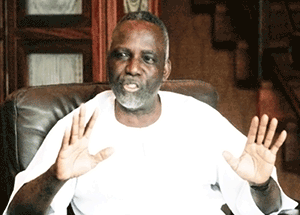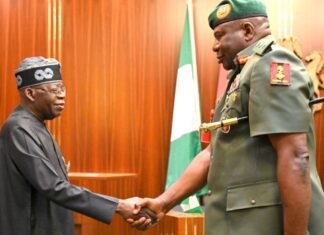Since his resignation as Minister of Power, Professor BARTH NNAJI has been more involved in his private business. But Special Correspondent, CHIBUZOR NWACHUKWU, recently took him on some salient national issues, including the power and education sectors
Engagement since leaving office
Prof Barth Nnaji
I have since gone back to my business which you know is developing power projects. That is what I am doing now.
Contributions while in office
Power is the bedrock of any economy in the world, and not just in Nigeria. With electricity, any business will be able to thrive. You have small and medium scale industries. You have large industries. You have homes and virtually anything that has to do with human existence as well as social amenities. Social activities can be on because you have electricity. Hotels, clubs and all that need electricity to operate optimally. My company identified this as very critical for economic development and chose Aba in Abia State, in collaboration with other sub-companies and the World Bank, to have an economic cluster that can serve as an example of how the economic cluster can work in Nigeria. With this economic cluster, everything would work because we have electricity there. You have people now coming to invest there. You have businesses that were operating in low capacity that will begin to operate at their proper capacity. This is because the electricity there is enough for them to function. You have electricity at the affordable price and so we wanted to ensure that we can achieve this in Abia.
When I was minister, I used this experience that I gained from the Aba project to address a number of issues that prevented the nation’s investors in power from making any progress. That brought about the power reform that was put in place. There was a document that was called the Power Reform Law before I came into government, but it was like sitting on the shelf. With the full support of Mr. President, we were able to practicalise it and put it into action. That is what is called the Power Reform Roadmap, which has led to the privatisation of the power sector.
Controversies trailing the privatisation process and workers’ demand
Truly, they (workers) had been paid off; but the issue was a question of how much they were to be paid. So eventually when there was meeting of minds, they were paid severance (benefits). That you were paid severance cannot be seen as if government pays you severance just like that; it truly means that you have been paid off. However, you can still be employed into the job and that was what has happened in this case. This is because the people who are going to manage the power sector cannot go about manufacturing workers. As you can see now, the generation and distribution companies have retained their workers; but that doesn’t mean that some will not go. But the people who form the bedrock of the workforce will be those who have been there.
Return of auctioned 20 power containers
There was never auctioning of any kind of thing while I was minister of power. We did not do that, but I would say that one of the things this government, while we were there, chose to do in the area of privatisation was to remove government’s hands in the generation and distribution of electricity. This was particularly in the distribution where corruption thrived most, and this has been achieved. This is to get people not to have any issue about containers or purchases or contracts or delay in execution. So we said let the private sector take control of all that and that is what it is all about. Even in privatisation, the generation companies have an aim to achieve full scale supply of power in the first instance. But what it does is, if you look at power supply coming from government, it may be two-thirds of the entire power supply and the rest comes from independent sources for now.
We have to look at each power plant, and each power plant will have to raise the capacity of the original installation. For example, a power plant that has capacity for 900 megawatts (MW) and is producing 200MW has to be refurbished to produce 900MW. We wanted to achieve that, and only the private sector can do it. The government, through its budgeting process, cannot do it. That is one. Now, when all these are achieved, you still have to build the new power plants, and the system has to be put in a way that it is ready to accept this additional power. That means that the distribution companies have to pay for that power.
The very first of the independent power projects that is real independent power project in the country is the one in Aba. In fact, among the over 70 licenses issued for the generation of electricity in Nigeria, only Geometric Power has broken ground, and of course the electric power is about to be commissioned. So it is a lot of work and a lot of effort to get the private companies to do the investment required to get this. The sooner Nigeria does that, the better for everybody.
Reasons for quitting office
The only thing is that I will just take Mr. President’s words when I resigned, that Professor Nnaji never committed any offence. We will leave it like that.
Speculations surrounding resignation
It is okay. You know that if you are in public office, people will talk about you – some good and some bad. It is okay. Let it be so. I must say that I did my work well, and if I am given the same opportunity in the same circumstance, I shall do exactly the same thing. I did nothing wrong and I did what I was supposed to do. I must add here that the country needs transparent governance. That was what I went to do and that was what I did.
The man Professor Barth Nnaji
He is a simple man who wants to help his nation to progress; who likes to make his own small contribution to the economic growth of this nation; who wants to provide better quality of life for his fellow country men and women from his village and from his community. There is nothing more, and for that I went to school. I am privileged to have gone to school to learn how to do some of the things that I am doing now.
I attended St. Patrick College, Emene in Enugu. Then, I went to America and did my undergraduate works at St. Johns University in New York and had my Masters and PhD at Virginia in United States of America and also did post-doctorate.
All these studies are in Engineering, both industrial and mechanical. I came back to Nigeria to work and I have never been privileged to lecture in Nigeria. May be somebody will grant me that privilege to do that. I was a professor at the University of Massachusetts. So my academic teaching has been in America.
Assessing education in Nigeria
It is as clear as daylight that we have an education system that needs serious revamping. It is not just at the university level, but also from the primary and secondary schools. We have to be putting out young people that are ready to work just like countries that have emerged recently and also in developed countries. The reason countries like Korea and Asian nations emerged was because they took education very seriously and introduced vigour in their education. You expect someone that finishes high school to have some quality of knowledge. (If) You expect someone that finishes secondary school to have some quantum knowledge that with empower them to do certain things; somebody that finishes university should therefore have a certain general knowledge and certain specific knowledge that cut across all areas. If you ask certain electric companies to come to invest in Nigeria, they must have some level of confidence that when they come, they will recruit Nigerian citizens, not to bring people from abroad to work in Nigeria. Therefore, the people who are to be employed have to be trained to do that; not that when they employ Nigerians, they will have to send them to school again. Those are the things that we have to ensure; to produce quality graduates who are capable of contributing to the growth of Nigeria’s economy.
People trained abroad not supporting the system
I don’t agree with you. I think that you are generalising at this point. I happen to come from abroad and I do not think that we are theorising. Many of the people that came back have contributed very well to the Nigerian economy. What you should say is that some of them find it difficult to adjust. But if you come with practical knowledge, they give their best. Some of them expect that the environment should be the same thing with that of Europe or America. If anybody is coming back to expect such a thing, he is not being serious. You have to come here and be part of the journey to make Nigeria better. If you have to dig a well to get water, you have to dig a well. If the road is bumped, be prepared to ride on a bumped road.
Dedicated Nigerians frustrated by the system
If the ruffians take over the political class or the humanity space, it is up to us to change it. Majority of our people are good people. We are people who want things to be done well. We only have very few people who want to cut corners and circumvent the due process of doing things.
Award of excellence by Ndigbo Lagos
Excellence is up to the people that you serve to decide. You do not arrogate such accolade to yourself. As a public officer, it is the people that will understudy you and give you scores. I feel it is a challenge on us to do more, and that is what it has to be. You must have impacted positively on the life of the people in the society. You must not be out of communication with your people.
The Igbo victims of the Nigerian factor
I don’t agree with you on that. The point is that there is no politics. When or if you excel, people will always find you and fish you out for your success and selflessness in service. Nobody can stand in your way because you are Igbo. Someone cannot be discouraged because of that.
Relationship with Power Minister, Professor Chinedu Nebo
He is my brother. We are quite close. You know that the job is not an easy one, but I must say that I understand his chemistry and he is in line with what Nigeria needs.













